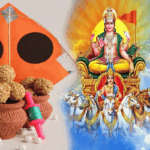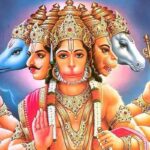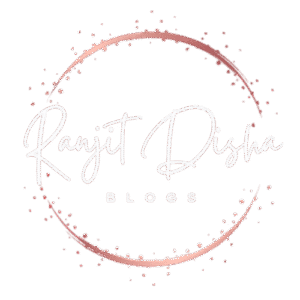In the age of digital globalization, Gen Z—those born between the mid-1990s and early 2010s—are not just passive consumers of culture; they are active curators, creators, and challengers of it. Unlike previous generations, Gen Z is growing up in an environment where identity is no longer just tied to geography or tradition—it is also shaped, performed, and validated online.
Through platforms like TikTok, Instagram, YouTube, and X (formerly Twitter), Gen Z is redefining what it means to belong to a culture, practice traditions, or even challenge cultural norms. Their language is meme-infused, their values are intersectional, and their platforms are global.
This blog explores how Gen Z is reshaping cultural identity through social media, breaking stereotypes, embracing hybridity, and fostering new forms of digital belonging.
Who is Gen Z? And Why Do They Matter in Cultural Conversations?
Gen Z is the first truly digital-native generation, having grown up with smartphones, YouTube tutorials, Instagram filters, and AI chatbots. They are also the most ethnically and racially diverse generation in many countries, making their relationship with culture far more complex and fluid.
Values: Inclusivity, authenticity, mental health, climate awareness.
Media Habits: Short-form videos, podcast snippets, viral trends, aesthetic feeds.
Cultural Consumption: Global K-pop and Afrobeat fans, South Asian fashion lovers in the West, traditional art revivalists on TikTok.
Their deep digital integration gives them a unique position: they can shape global perceptions of culture in real time, often challenging the narratives shaped by older generations and mainstream media.
Social Media as a Cultural Mirror and Megaphone
Social media is not just where Gen Z shares culture—it’s where they define, remix, and evolve it.
a) TikTok: The New Cultural Lab
TikTok has become a powerhouse for cultural experimentation. A 15-second dance, a stitched video sharing indigenous knowledge, or a meme about being second-generation immigrant—each of these can go viral and spark global cultural conversations.
#DesiTikTok and #NativeTikTok have helped South Asian and Indigenous youth claim their cultural space.
Trends like “Outfit of the Day” (#OOTD) have morphed into deep dives into ethnic fashion, sari drapes, or Black haircare rituals.
b) Instagram: Curated Identity and Aesthetic Cultures
On Instagram, Gen Z merges aesthetics with identity. Cultural expression is often visual—Henna art, streetwear inspired by African motifs, hijabi fashion influencers, or minimal Korean home decor.
Instagram Reels are increasingly used to share traditional recipes, call out cultural appropriation, or promote local art.
The platform fosters “visual storytelling”—a powerful form of cultural assertion.
c) YouTube: Long-Form Cultural Storytelling
YouTube enables longer cultural exploration—be it through vlogs, commentary, or educational content.
Gen Z creators discuss racism, casteism, cultural beauty standards, and decolonization through long-form storytelling.
Diaspora vloggers bridge gaps between homeland and host culture, often becoming virtual cultural ambassadors.
From Cultural Appropriation to Cultural Appreciation
Social media has sharpened Gen Z’s sensitivity to issues like cultural appropriation, where dominant cultures adopt elements of marginalized ones without respect or context. Gen Z actively calls out such behaviors, forcing brands, celebrities, and influencers to rethink their choices.
At the same time, they are fostering cultural appreciation:
Non-South Asians learning proper pronunciation of “churidar” or “biryani” after viral videos.
K-pop fans diving into Korean language and history.
Indigenous creators sharing sacred meanings behind traditions to educate rather than exclude.
The line between appropriation and appreciation is complex, but Gen Z is willing to have those hard conversations—and they’re doing it publicly.
Embracing Hybridity: The Rise of Cultural Remixing
Rather than sticking to one “pure” identity, Gen Z often embraces hybrid cultural expressions:
A Gen Z Muslim girl pairing a hijab with thrifted Western fashion and makeup.
A Black American creator blending ancestral African drumming with trap beats.
Indian-origin youth fusing Kathak with hip-hop in viral dance reels.
This remixing of culture is a rejection of rigid identities. It celebrates fluidity, intersectionality, and self-invention.
Language, Slang, and Memes as Cultural Tools
Gen Z’s use of slang and memes to express culture is revolutionary. It allows for:
Code-switching between English, vernacular, and internet lingo.
Reclaiming derogatory slurs or phrases with humor and defiance.
Creating new digital subcultures (e.g., “Brown Twitter”, “Alt TikTok”).
Memes about immigrant parents, food wars (like the global “chai tea” vs “chai” debate), or subtle caste/class jokes—these go viral not just for laughs, but because they speak deep cultural truths.
Digital Activism and Identity Politics
Many Gen Z users engage in cultural activism online:
Campaigns against caste-based discrimination (#DalitLivesMatter)
Support for Palestine, BLM, LGBTQIA+ rights across geographies
Call-outs of historical whitewashing in textbooks and films
Social media enables global solidarity while highlighting local cultural struggles. Identity is not just personal—it’s political, and Gen Z is not afraid to show it.
Community Building and Belonging
Gen Z often finds community and belonging online more than offline.
Queer South Asians connecting via Instagram stories.
Mixed-race teens sharing their struggles and forming support groups on Reddit.
TikTok duets connecting Indigenous youth across countries.
These digital spaces often become modern cultural homes, where being misunderstood in real life is replaced by being celebrated online.
Challenges: Identity Overload, Performative Wokeness, and Cultural Gatekeeping
Despite the positives, Gen Z also faces challenges:
a) Identity Overload
The constant need to define and present oneself online can cause confusion or anxiety. Many feel pressure to “represent” their culture “authentically,” even when they are still discovering it.
b) Performative Activism
Some users adopt social justice trends without deep understanding—turning real issues into aesthetic content or temporary hashtags.
c) Gatekeeping and Cancel Culture
Debates around who is “allowed” to speak on what cultural issue can become toxic. Sometimes, genuine curiosity or hybrid identity gets unfairly judged.
Still, these tensions also reflect a generation deeply invested in justice and authenticity, even if they’re still figuring out the boundaries.
Gen Z, Brands, and the Future of Cultural Influence
Brands that want to connect with Gen Z must go beyond tokenism. Gen Z demands:
Real representation (not just diversity in ads, but in leadership)
Transparency in sourcing, cultural respect, and community engagement
Collaborative creation with cultural communities, not extraction
Gen Z’s cultural power means they can build up or break down brands in days. Their loyalty lies with those who listen, learn, and amplify responsibly.
What the Future Holds: Culture as a Living, Evolving Dialogue
As Gen Z matures, we can expect:
Greater fusion between local traditions and global digital trends.
A deeper push for decolonized narratives in history, education, and art.
Increased use of AI and AR in expressing and preserving culture (e.g., virtual museums, 3D traditional clothing filters).
Cultural identity will no longer be static or inherited—it will be co-created, interactive, and constantly reimagined.
Conclusion: The Cultural Architects of the Digital Age
Gen Z is not just redefining culture—they are reshaping the way we think about identity itself. Through their social media habits, activism, humor, and global connections, they are making culture more inclusive, fluid, and dynamic than ever before.
While challenges remain, Gen Z’s courage to question, explore, and express is laying the foundation for a richer, more interconnected global cultural landscape.
For educators, brands, artists, and older generations—now is the time to listen, learn, and engage. Because in Gen Z’s hands, culture is not just inherited—it’s transformed.
Related posts:
 The Impact of Social Media on Food Culture: A Digital Revolution
The Impact of Social Media on Food Culture: A Digital Revolution
 The Role of Social Media in Promoting or Stopping Violence: A Double-Edged Sword
The Role of Social Media in Promoting or Stopping Violence: A Double-Edged Sword
 Bhadra’s Unique Influence on Raksha Bandhan 2023
Bhadra’s Unique Influence on Raksha Bandhan 2023
 Makar Sankranti: A Festival of Harvest, Tradition, and Joy
Makar Sankranti: A Festival of Harvest, Tradition, and Joy
 Gyanyog: The Spiritual Legacy of Swami Vivekananda
Gyanyog: The Spiritual Legacy of Swami Vivekananda
 Boost Inner Strength and Discipline by Following Hanuman’s Path on Jyeshtha Mangal
Boost Inner Strength and Discipline by Following Hanuman’s Path on Jyeshtha Mangal
